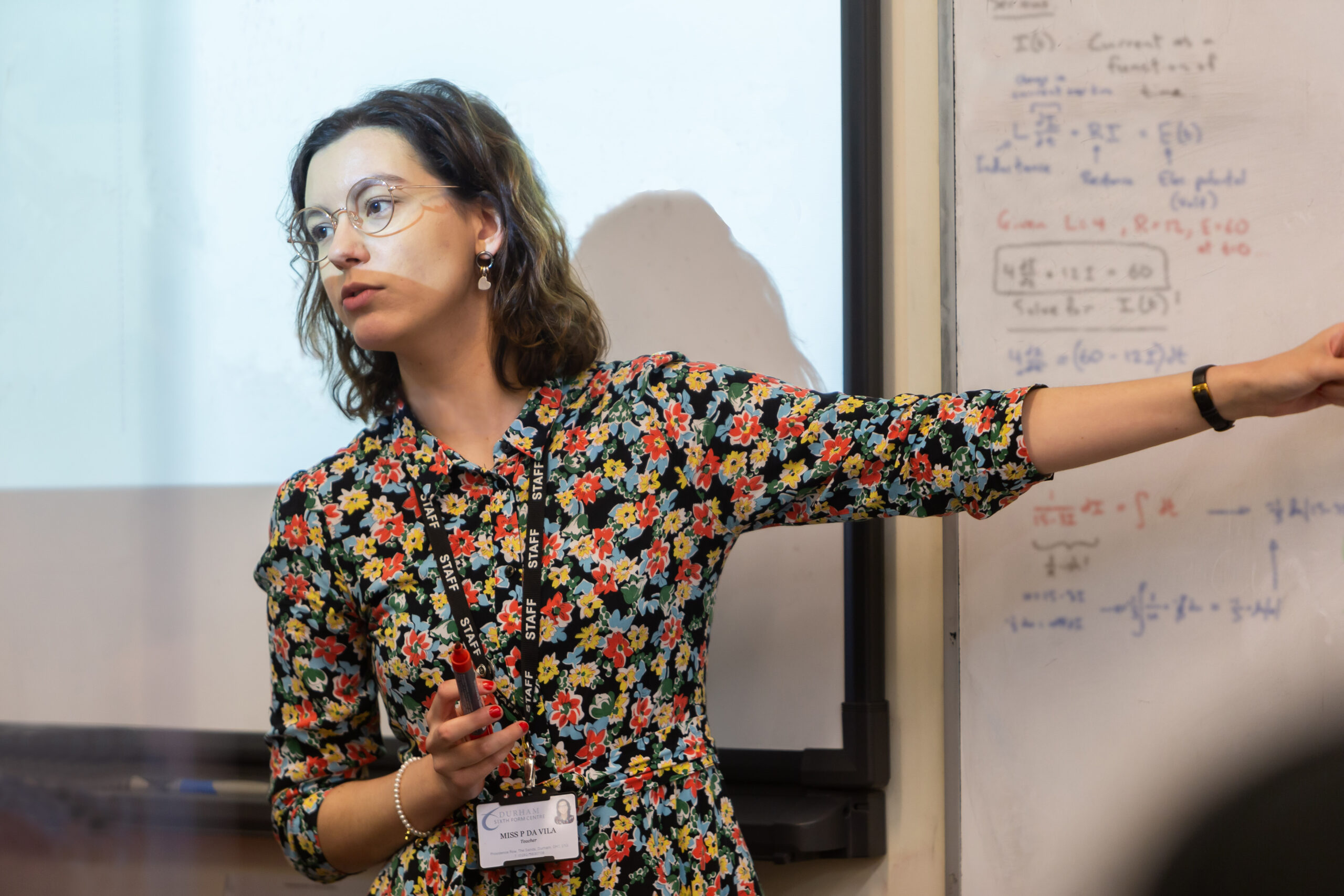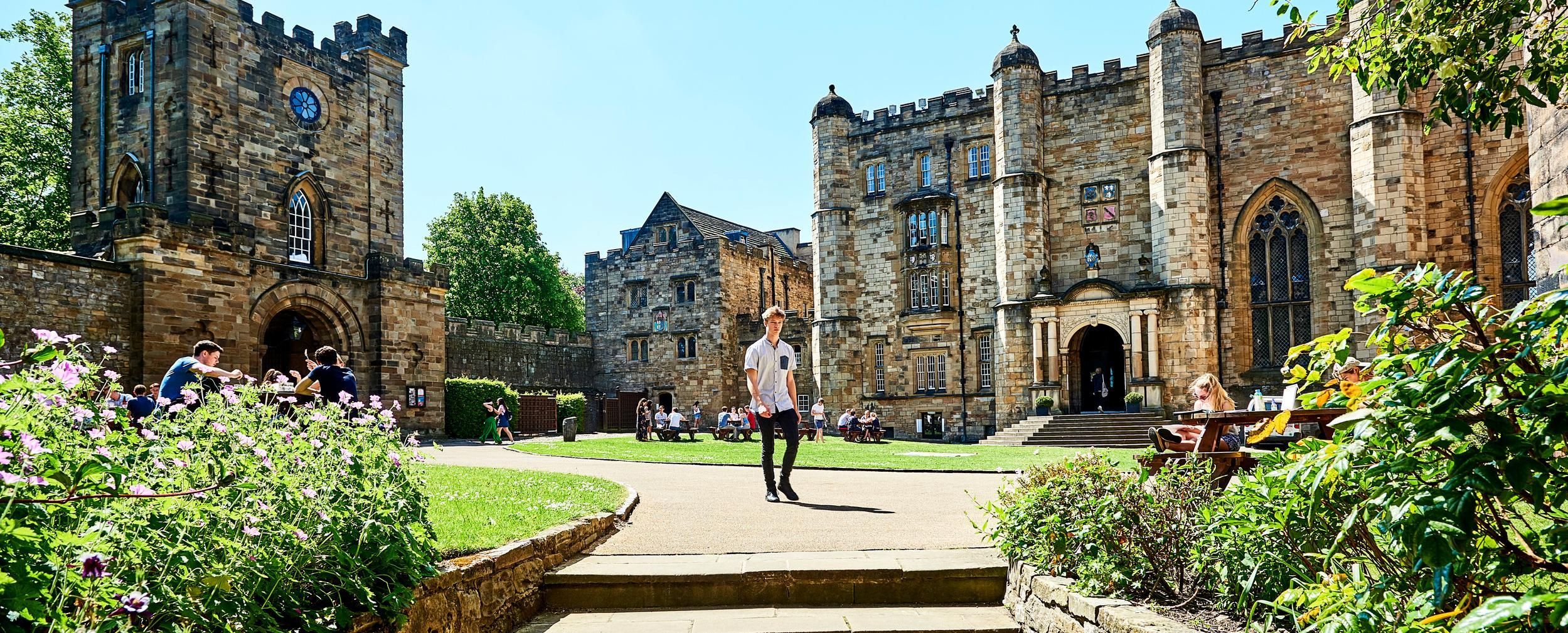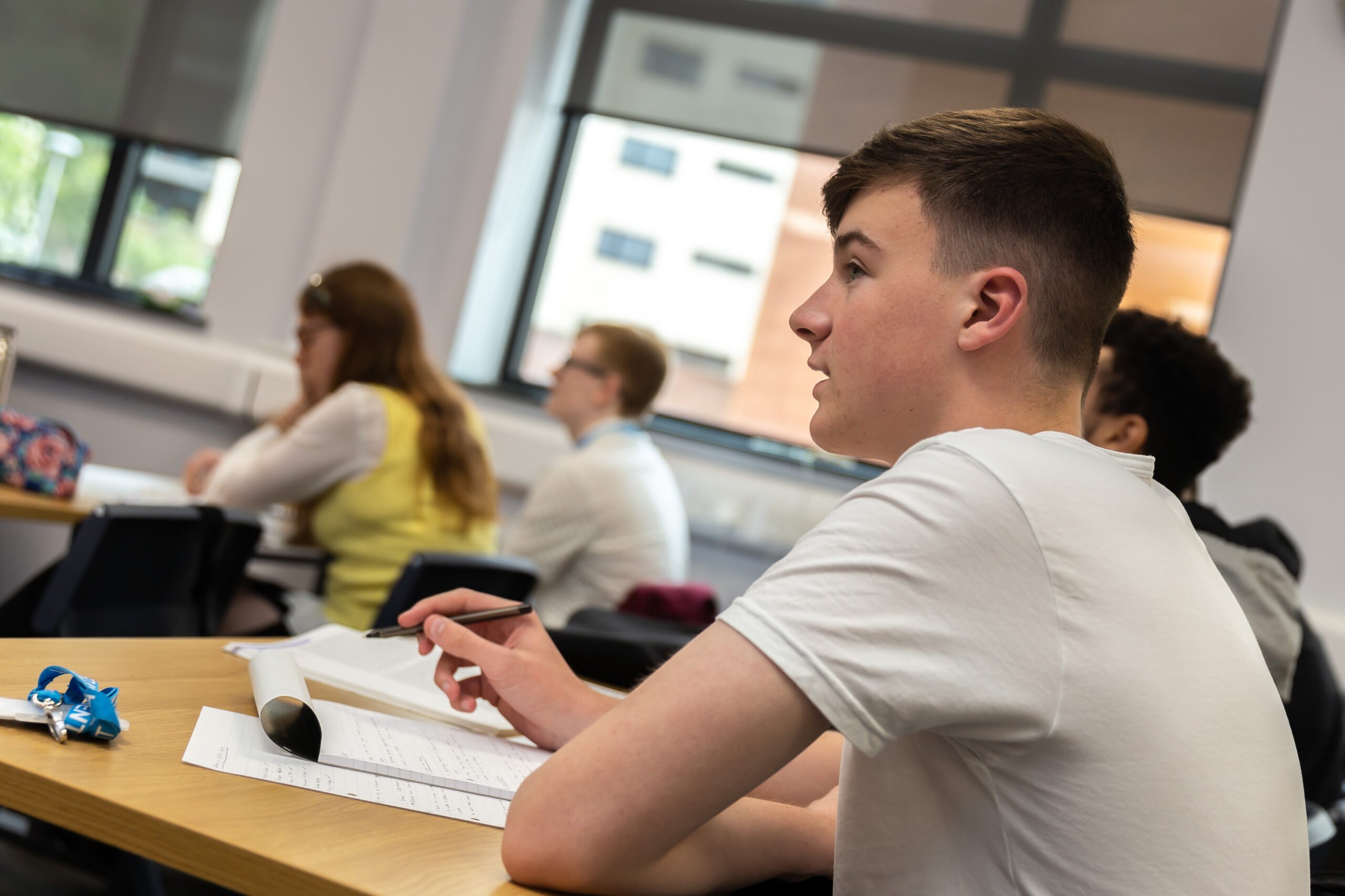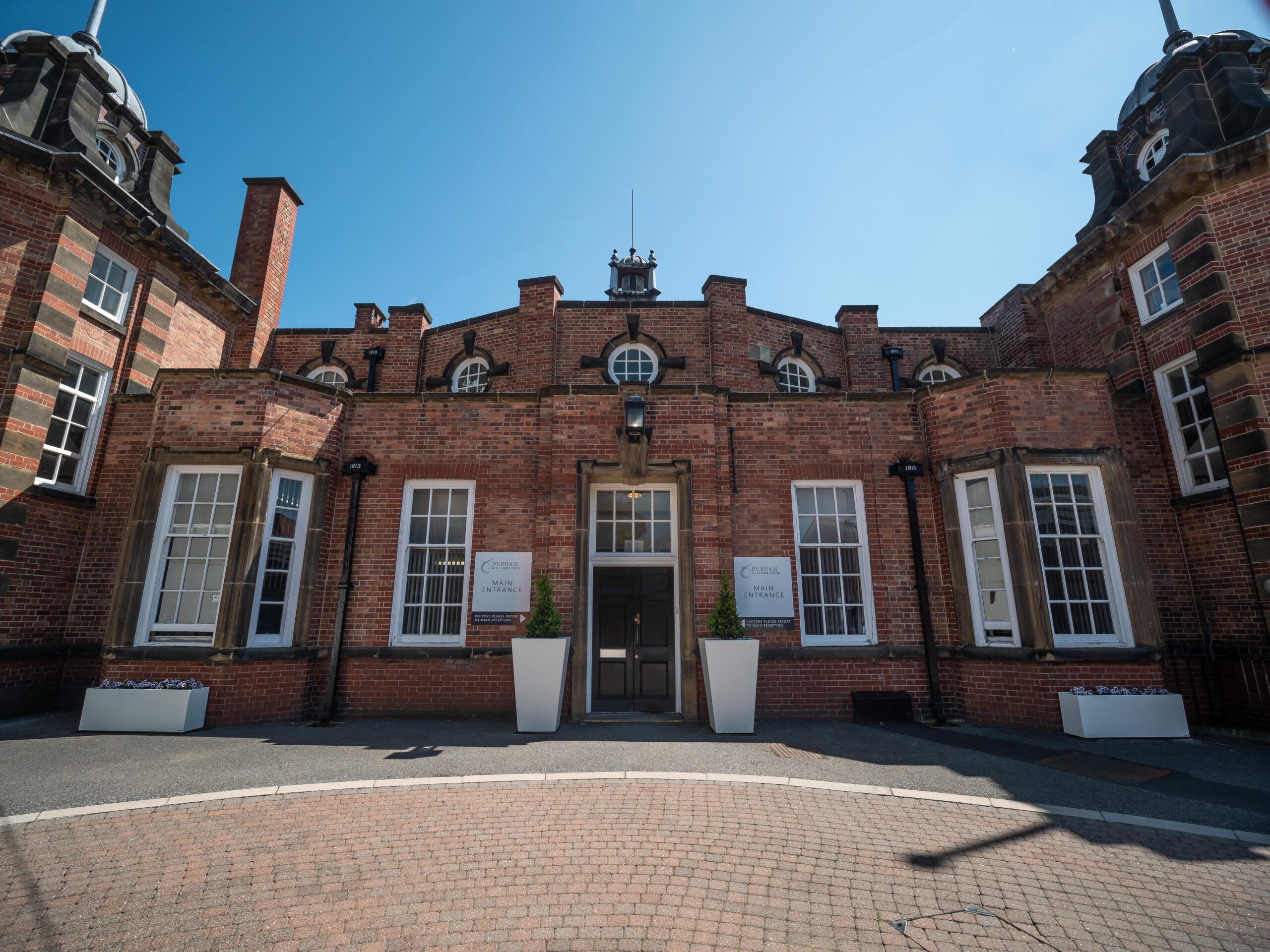Mathematics
There are 4 main areas associated with A level Mathematics and Further Mathematics; pure mathematics, mechanics, statistics and decision maths.
Pure mathematics involves areas like calculus, trigonometry and vectors. Do all equations have a solution? How many prime numbers are there less than one trillion? Why can’t we write π as a fraction?
Mechanics has a strong overlap with physics. You study forces and energy which will allow you to do things like predict the trajectory of a cricket ball, examine the motion of balls on a snooker table and explain the motion of a pendulum. Later study may lead to questions about chaotic systems like the weather. Why is the weather forecast always wrong? and the famous butterfly effect.
In Statistics you learn how to make predictions on large numbers using probabilities, using things like the Poisson distribution. Why haven’t I won the lottery yet? What’s the probability that a coin comes up heads ten times in a row? What does this data tell me about the world?
Decision Mathematics has a strong overlap with computer science. You look at algorithms which help you understand how computers solve problems which to us seem incredibly simple, such as how to sort a list of numbers. You will also look at problems from graph theory like the famous travelling salesman problem; what’s the quickest route that will let me visit a list of places in the shortest amount of time?
Throughout mathematics lessons, your teachers will encourage you to put forward your own ideas, and will help you to build them, either independently or collaboratively, into powerful and general methods. There will be specific lessons dedicated to improving your ability to solve difficult, abstract problems, and developing your ability to explain your ideas confidently and coherently, both verbally and on paper.
Physics
Physics is about trying to describe the phenomena we see in the natural world around us and where possible to determine why and how they happen. Richard Feynman once said that physics was a bit like watching a game of chess without knowing any of the rules. We have to watch the game and by seeing what moves are played we can determine what the rules are and how they apply in different situations. Physics is the most fundamental of the sciences, it describes how all of the particles interact with each other on a microscopic level and we can then extrapolate that to a macroscopic level, physics covers everything from the quantum world of the incredibly tiny to the universe where we make observations and predictions about distant galaxies.
A level Physics covers a wide variety of topics from optics to mechanics, radioactivity to quantum mechanics and particle physics. This broad background gives you an excellent base from which to take it further as well as allowing you to understand many everyday phenomena such as the basic principles of a rocket using mechanics, the orbit of a satellite using gravitation and how a PET scanner works using radioactivity.
Where many students of A-level Physics must satisfy themselves with qualitative explanations that are often awkward and unconvincing, you will learn to understand Physics using its natural language, Mathematics.
Computing
Computer Science is one of the most important areas of the modern world, it underpins our modern way of life. In computing you will study how the internet works, how data is sent and received between computers and how it is kept secure. You will learn how data is stored as binary, how to understand boolean logic and important computer science principles such as conditionals and loops. Here there is also quite a strong overlap with decision maths as we may wish to know what is the most efficient way of storing data, what the output of a logic circuit could be or how does the time taken to run an algorithm depend on the size of the data set.
In addition to the theoretical study of data and algorithms, there is also a strong practical component to the Computer Science A level as in it you will learn programming languages such as VBA and Python as well as the potential to learn others such as SQL or C++ depending on your interests. A large part of the syllabus is a self-directed project where you can program anything you like in any language you like, so you can stretch yourself and make whatever you want.
You will study what algorithms are, how they work and how to make use of them, and how to bring this knowledge into Mathematics as a powerful way of solving problems.




